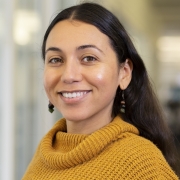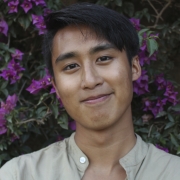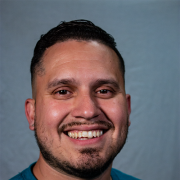In the midst of a global pandemic and against the backdrop of heightened focus on police violence and the inequities experienced by the black community, this summer MCC's Weber Shandwick Scholars were assigned a timely project by the WS DC office: to develop a methodology and evaluate the efficacy of Diversity, Equity, and Inclusion (DEI) initiatives across different brands in Weber Shandwick's clientele. This included examining a brand's corporate leadership structure, its business practices, public messaging, investment in intersectional social causes, and how these commitments are perceived by the public.
The scholars tackled the directive by scraping brand conversations on social, analyzing external client data from multiple platforms, and utilizing internal data tools to have a comprehensive view of each client. This work culminated in a rigorously researched and probing report they presented to the corporate office on July 31. While the findings remain confidential, the conclusions they drew have wide implications for the industry. What's evident is that deep cultural competency is essential for brands to operate with success.
We spoke with each of the scholars to better understand their own intellectual interests and for further insight about how they think the media industry should meet the current moment.

"Brands can't have internal policies that contradict their public solidarity messaging."
— Elli Garcia
Place you consider home: New York, NY
Describe your academic interests: My interests lie at the intersection of sex education, race, and digital technology. Specifically, I am interested in understanding how visual performances of sexuality in commodified digital spaces serve (or do not serve) as a source of sex education.
Tell us about your undergraduate experience: I attended California State University, Fullerton where I studied Business, Accounting, and Finance. I entered the workforce as a Data and Social Media Analyst working for several consumer fashion and media brands. After being exposed to the racist and sexist biases upheld in consumer culture, research, and marketing, I was inspired to return to an academic environment which allowed for intellectual inquiry and critique of the structures and operations I was directly exposed to.
What has been the most exciting academic experience at MCC so far? I have been blessed with more exciting experiences than I can even remember. A few stand outs include taking Surveillance and Sousveillance at NYU Madrid with some of the most fun and brilliant MCC students; plus the courses Visual Culture, Capitalism, and The Middle East; Race and Media; and Postfeminism, Femininity, and Mass Media.
Tell us about the work you did in your first year in residency at Weber Shandwick: I am on the Global Intelligence team at WS NYC and WS DC. During my first year on the team, I worked on reputation and sentiment analysis projects for beverage and pharmaceutical clients. These projects involve gathering and analyzing social media conversation data sets to identify relevant conversation and sentiment trends that inform brand positioning and reputation.
How has the Weber Shandwick residency challenged you? I've had my fair share of corporate positions, however this is the first time working for an agency with a variety of clients across industries. The agility, presence, and quick turnaround required of working for a public relations agency against the backdrop of COVID-19 and global protests against police and state violence has certainly been the most challenging aspect of the residency thus far.
What was most stimulating about your summer research project on DEI? What I find most meaningful about this project is the opportunity to hold businesses accountable for their implicit (often times explicit) racial biases and inequitable policies and cultures. My professional experience as a data analyst and personal experience as a woman of color working in corporate America positions me to ask the right questions when gathering relevant public data — and to imagine a future in which businesses embody a moral code which equitably engages historically marginalized employee groups and prioritizes internal and external social equity initiatives.

To remain authentic, brands must ask themselves, 'Is the company helping the cause, or is the company helped by the cause?'
— Leonard Santos
Place you consider home: New York, NY
Describe your academic interests: LGBTQ+ youth mental health, digital media and technology, suicide, media activism, sex education, social media, web development and design.
Tell us about your undergraduate experience: I received my Bachelor’s in MCC with a double minor in Web Programming & Applications and Business of Entertainment, Media, & Technology. I focused on the intersection of LGBTQ+ youth mental health, digital media, and technology, and wrote my thesis about LGBTQ+ youth suicide in the United States and its relationship to social media.
What has been the most exciting academic experience at MCC so far? Definitely working with the MCC MediaLab, a student-led learning space for digital critical making. I joined the team back in my sophomore year without any technical experience, but they really helped me grow and I’m happy to still be a part of the MediaLab now in my graduate career.
Tell us about the work you did in your first year in residency at Weber Shandwick: I spent my first year at Weber Shandwick working with The X Practice, a client-engagement practice for technological and digital solutions. It's my first corporation position, and I'm exposed to a whole new world. One of the most challenging, yet rewarding, aspects of my position was having to adapt very quickly from project to project since they were often unrelated and from different clients.
What was most stimulating about your summer research project on DEI? As someone who is very passionate about media activism, I find that a project like this is very necessary and can bring about change to help marginalized and underserved communities. Specifically, I hope that this helps BIPOC, LGBTQ+ individuals, and other people who are directly affected by the culture that these clients create and perpetuate. With the Black Lives Matter movement gaining much momentum over the past month and the COVID-19 pandemic exposing many of our country’s failures to serve all its citizens, there’s an opportunity to push companies to make more ethical choices.
"Diverse leadership truly makes a brand more competent and more credible."
– Lorena Kanzki
Place you consider home: Miami, Florida
Describe your academic interests: I graduated in 2019 from Syracuse University with a double major in Television, Radio, and Film and Women's and Gender Studies. My undergraduate thesis, Wearing Two Hats, was a virtual reality experience of college life based on stories gathered from students across the United States who identify as being both first-generation college students and first-generation Americans, like myself. Much like this project, my research interests have always lied at the intersection of social justice and emerging media technology.
What has been the most exciting academic experience at MCC so far? The most exciting academic experiences I've had thus far at MCC include taking a Surveillance and Sousveillance course abroad at NYU Madrid, taking Professor Kelli Moore's Race and Media course focused on Black feminist theories, taking Professor Juan Piñón's Transnational Media Flows course, and taking Professor Stephen Duncombe's Media Activism course. In the Media Activism course, my group created a multimedia project, DeVOTE NY, which has a continued goal of raising awareness to pass New York Bill S4844/A6512 which would mandate comprehensive and inclusive sex education across New York State.
Tell us about the work you did in your first year in residency at Weber Shandwick: I work with the Creative Practice at Weber Shandwick NYC and DC. I've been assisting the Creative Teams with concepting, copywriting, scriptwriting, art direction, design, and producing multimedia content for various clients from consumer brands to non-profit organizations.
How has the Weber Shandwick residency challenged you? Before working at Weber Shandwick, I was a Digital Media Intern at Discovery Communications where I produced digital content for Animal Planet and the Science Channel. I then worked as a documentary film editor for Scherley Busch Studios where I edited documentaries in collaboration with Florida Women of Achievement, a non-profit organization. Since my past roles involved creating in-house media content, this residency program has given me the challenge of producing content for multiple clients and audiences in a fast-paced agency setting. I’ve been working on finding effective methods of applying theoretical knowledge from my studies to practical business issues in the industry. For example, as one might expect, I don’t often hear terms like “feminist theory” in industry settings, so I’ve been seeking ways to bring these theories into conversations at the tables I now have access to in hopes of informing the media content we create.
What was most stimulating about your summer research project on DEI? I find this work to be particularly critical in the context of the recent amplifications of the Black Lives Matter movement. Businesses’ communications are being monitored and held accountable by the public to recognize the roles these businesses play in systemic oppression. It is no longer socially acceptable for businesses to remain silent and complacent when it comes to social justice. I believe this project provides a meaningful opportunity to create a more in-depth approach to DEI work by looking beyond the act of taking action and into the assessment of what the quality and impact of that action looks like. I hope our project helps to raise the standard of DEI initiatives by providing methodology and insight on how DEI work can be assessed and improved to become more effective, proactive, and sustainable. In doing my part in this group research project, I hope to effectively contribute with my professional experiences in the media industry, my personal experience living with intersectionality marginalized identities, my research experience, and my academic background in feminist studies including decolonial feminism, Black feminist theory, and feminism and disability justice.

"We aim to offer a roadmap for moving from good intentions to best practices."
— James Barbosa
Place you consider home: Elizabeth, New Jersey
Describe your academic interests: Throughout my undergraduate career, I realized that there was a significant need to increase the representation of U.S Latinx in mainstream media. The problem with our current media landscape consists not only of a lack of Latinx personalities in mainstream media, but a proper representation of our communities. Representations are out of sync with the current and future population of the United States. By 2050, the U.S Latinx population is set to reach 125 million, shifting white America into the 49.7 percentile. The Latinx population will become America's largest media consumer. According to the Latin Gabe Media Report, 94% of Latinx listen to the radio and 25% of movie tickets are purchased by U.S Latinx. Yet Latinx people play a very small role in the production of this media. From 2000 to 2009, Latinos accounted for 2.4% of directors, 0.8% of producers, and 0.6% of writers. When I first realized this discrepancy, this lit a fire within me to make a change in the status quo in American media. By acquiring higher education, something that so many within my community struggle to accomplish, I would be able to research the many ways in which proper representation can shape social change and create a better image of groups that are considered not American within the United States.
What has been the most exciting academic experience at MCC so far? The course that was most exciting for me was, Critical Video: Theory & Practice with Nicole Starosielski. The course introduced me to the use of documentary, ethnographic, and research-based video to investigate and critique contemporary culture (in my case the misrepresentation of U.S Latinx’s). Furthermore, the class gave me conceptual tools to analyze video.
Tell us about the work you did in your first year in residency at Weber Shandwick: I was placed on the United Minds team. I went through a combination of formal training and “on the job” development to help others on the team. Furthermore, I contributed to client projects and provided research in areas including culture, communications, brand and diversity.
How has the Weber Shandwick residency challenged you? It's challenged me in many ways. To begin, the work culture was different. My assigned group's customs are austere and not necessarily socially engaging. For example, most employees go straight to their desk and begin work on their computers, all meetings are set-up through emails, and most conversation is conducted through email as well. Granted, I understand the clients work takes priority, however, the places I have worked for in the past were more social. Thus, I struggle to feel valued, and comfortable, because of the lack social engagement.
What was most stimulating about your summer research project on DEI? Corporations' lack of knowledge about institutionalized racism coupled with consumers' focus around racial issues, means it's become increasingly difficult for brands to demonstrate meaningful impact to consumers. I believe helping to dismantle institutionalize racism is very meaningful. I believe this type of evaluation and assessment could be invaluable to clients, offering a roadmap for moving from good intentions to best practices. I am enjoying this summer project because we have help from the analytics department. They are mentoring and teaching us on how to use analytical software for our research. Though I have very little experience with analytics, I love the fact that this tool could be essential not only for this project but for personal skills that can land me future employment.
